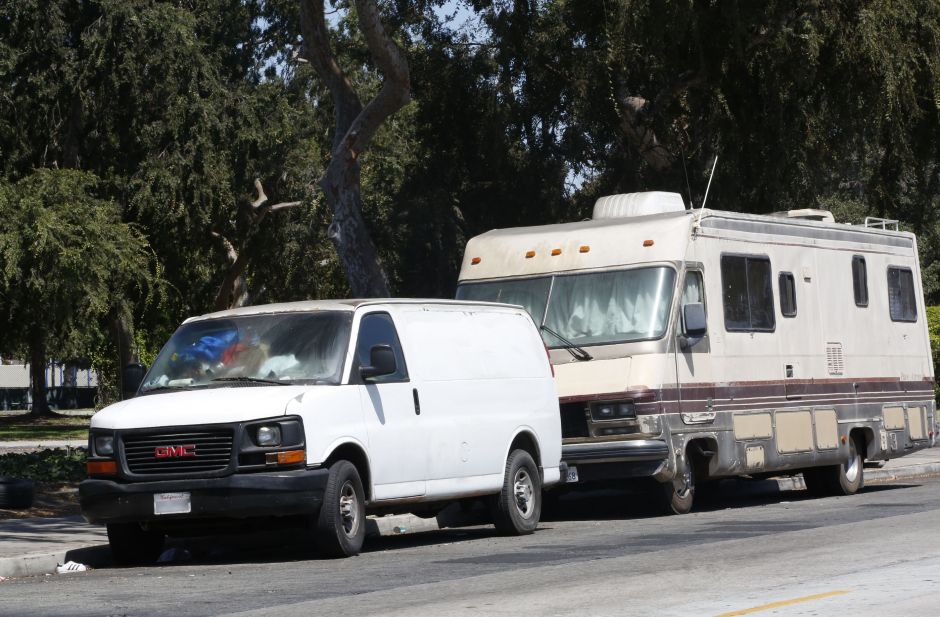LADOT program helps the homeless to catch up, but they are asked to work on their well-being

Many people live in their cars because they cannot afford the rent of a home. / photo: File.
Photo:
Aurelia Ventura / Impremedia / La Opinion
For more than three years a program that helps remove traffic fines for homeless people has been working well.
To date, the City of Los Angeles Community Assistance Parking (CAPP) Program has shaken hands with more than 1,000 people.
CAPP was created so that homeless people with parking tickets can pay for them with community service.
Teresa Mayer, a management analyst at the Los Angeles Department of Transportation (LADOT) said that at that time Mayor Eric Garcetti wrote a directive and ordered all departments in the city of Angel to submit a plan to help the homeless.
"This was the response of the LADOT department," said Mayer, who created the program. "I worked with councilors and city council offices to see what they were going to do and how we were going to help the people and this plan turned out for us," he said.
Since then they help people with fines related to their vehicle. For example, for parking in a prohibited place or if the parking meter expired.
It is not help for pedestrians or fines of any other kind, only for those related to vehicles, Mayer emphasized.
He explained that the maximum amount that the CAPP program can cover per person is a fine of up to $ 1,500 which can be paid with “community work”.
However, unlike other residents who pay for community work cleaning streets or highways, these homeless people – Mayer says – are asked to try to improve their well-being.
"For example, if they are going to see a case supervisor, they are looking for help to get an apartment, rehabilitation or if they are going to feed other homeless people, we give them credit in their payment," he added.
“Also if they go to the DMV to get their ID we help them with credits (of hours). This has been like a program of reintegration into society ”.
If the expenses exceed $ 1,500, the people are referred to the Department of Parking Violations, which offers other payment options.
This payment plan (IPP) is aimed at low-income people, where homeless people also qualify.
The payment plan became effective in 2018 and is available to homeless drivers or those whose financial situation qualifies them under the guidelines of the Federal Register of the US Department of Health and Human Services.
Those who qualify must fall within the monthly income of 125% or less of current poverty guidelines and / or receive public assistance benefits.
And unlike IPP, CAPP offers extensions and is flexible with those who cannot meet the requirements to settle their account.
"We give them about three months to pay their hours but if they fail to do so at that time we give them an extension," Mayer said.
Examples of community hours according to the fine:
$ 25- $ 250- 6 hours
$ 251- $ 500- 12 hours
$ 501- $ 750- 18 hours
$ 751- $ 1,000- 24 hours
$ 1,001- $ 1,250 – 30 hrs.
$ 1,251- $ 1,500- 36 hours
For more information and to know if you qualify, call 1 (213) 978-4400 or write to LADOT.CAPP@LACITY.ORG








